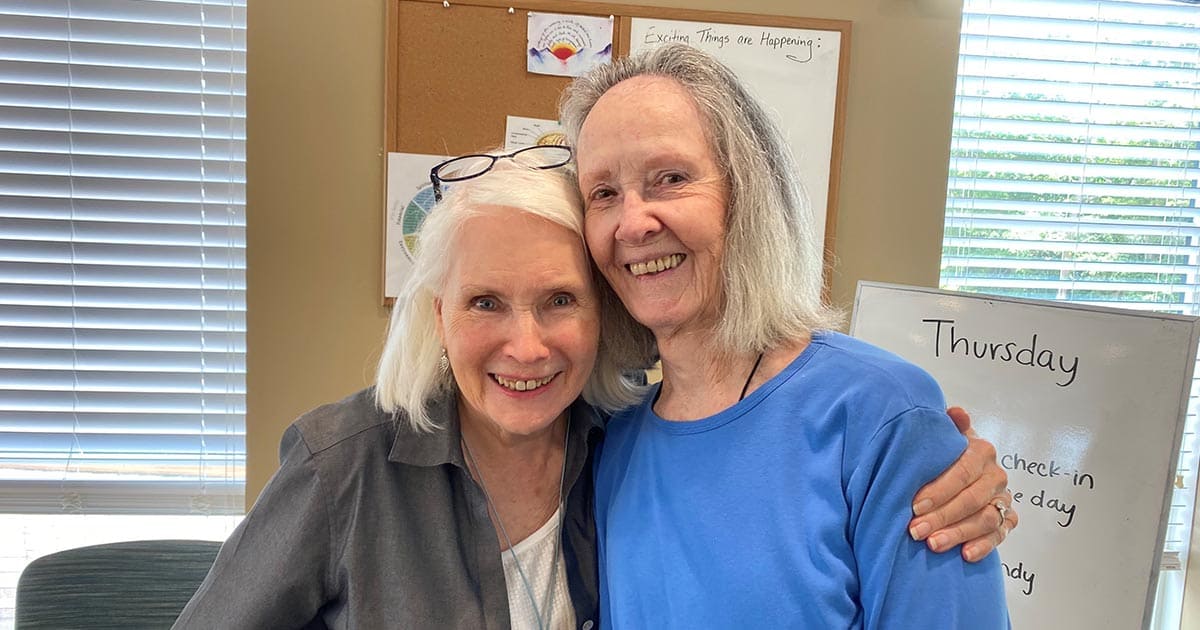Talking about moving to a senior living community with an aging loved one can often be a delicate and emotional subject. The conversation about senior living demands empathy, understanding, and thoughtfulness.
However, when approached with the right mindset and preparation, you can pave the way toward a better quality of life and overall well-being. If you’re uncertain about how to initiate the discussion or how to involve close relatives in the decision-making process, this blog from Abe’s Garden Community provides some easy yet effective tips for a more supportive and less stressful conversation.
Tip #1: Begin the talk early
One of the most significant steps you can take when discussing senior living options is addressing the matter as early as possible. For example, start the conversation when your loved one is relatively healthy to allow everyone time to evaluate options without feeling rushed into a decision. This will ensure your loved one’s desires and concerns can be considered thoroughly.
Tip #2: Show empathy & respect
Remember, the conversation about transitioning to senior living may be emotional. Make sure you approach the topic with the utmost respect and understanding. Validate your loved one’s feelings and concerns – and reassure them about their important role in decision-making.
Tip #3: Take time to listen to your loved one’s questions and concerns
Senior living discussions should not be one-sided. Make it a progressive dialogue that evolves over time. Take time to actively listen, answer questions, address concerns, and provide reassurances when needed. Active listening allows your loved one to feel like part of the process and will likely strengthen trust and your partnership in making decisions together.
Is senior living the right choice? >>
Tip #4: Educate yourself and your family
Many senior living options are available, including independent living, assisted living, memory care, and more. Each community is unique and often offers different levels of care and comfort. So, educate yourself about these options. Understand the terminology, costs, benefits, and potential drawbacks. Educating yourself will better prepare you for any questions your loved one may have and help you present the information in an easy-to-understand manner.
Tip #5: Get your family involved
When the time is right, including other family members in the conversations about senior living is crucial. Involving siblings or close relatives can lighten the emotional load of the process. A united front can also provide a circle of support for your senior loved one. Additionally, clear communication within the family prevents any potential misunderstandings or conflicts down the line.
Discover safety, security, and peace of mind in a senior living community >>
Tip #6: Consult professionals
If you encounter resistance from your loved one or if things seem overwhelming, don’t be afraid to seek professional guidance. Geriatric care managers, elder law attorneys, or social workers who specialize in senior care can contribute professional insights and help frame the discussion in a neutral, realistic, and compassionate way.
Tip #7: Focus on the positive aspects
Lastly, highlight the positive aspects of senior living communities – social activities, maintenance-free living, safety, healthcare support, independence, and more. Thoughtful discussions emphasizing the benefits can gradually help your loved one see the brighter side of this life transition.
Conclusion
Having a conversation about senior living with your aging loved one can be challenging. However, navigating the life change with early preparation, empathy, respectful dialogue, thorough research, family involvement, professional consultation, and a focus on the positive aspects can make it notably smoother and more successful.
Are you ready to explore senior living further?
Download our free guide, “The Complete Guide to Choosing Between Senior Living Options,” to help you understand the options available to you or your loved one. You’ll learn the differences between the levels of care, what costs to expect, how to create a budget, and what questions to ask when visiting communities.

